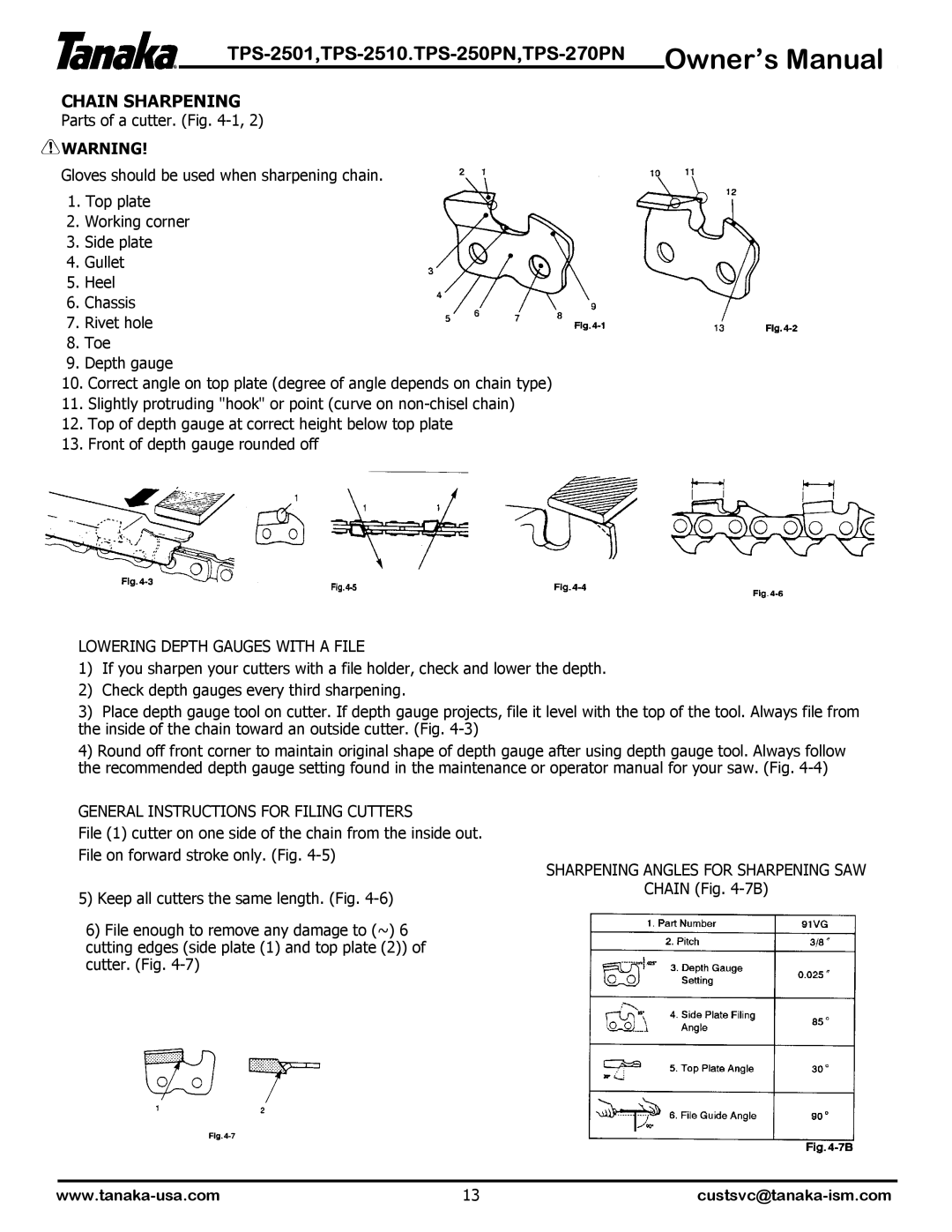TPS-250PN, TPS2501, TPS-2510, TPS250PF/PN, TPS-270PF/PN, TPS-2510, TPS-2510, TPS-250PF/PN, TPS-270PF/PN, TPS-2501 specifications
The Tanaka TPS series represents a line of advanced technological tools designed for efficient and precision-driven operations across various industrial applications. Among the notable models are the TPS-250PN, TPS-2501, TPS-2510, TPS-250PF/PN, and TPS-270PF/PN. Each model embodies unique features tailored to enhance productivity and user experience.The TPS-250PN stands out for its robust construction and reliability, making it suitable for heavy-duty tasks. It is equipped with a powerful motor that ensures consistent performance even under demanding conditions. The lightweight design facilitates maneuverability, allowing operators to work with ease over prolonged periods.
The TPS-2501 emphasizes versatility, combining various functionalities into a single unit. It incorporates advanced control technologies, enabling precise adjustments suited for different materials and applications. The intuitive interface enhances user engagement and adaptability, making it an ideal choice for both professionals and novices in various sectors.
Meanwhile, the TPS-2510 showcases an advanced safety mechanism, minimizing risks during operation. Its ergonomic design reduces strain on the user's body, contributing to a safer working environment. Enhanced energy efficiency is another hallmark of the TPS-2510, allowing for extended working hours without excessive energy consumption.
The TPS-250PF/PN model integrates innovative feedback systems that monitor performance in real time. Such technology not only optimizes productivity but also provides valuable data for future operational improvements. This predictive capability helps in reducing downtime and maintenance costs, further enhancing overall efficiency.
On the other hand, the TPS-270PF/PN excels in specialized applications, providing high precision and effectiveness in operations that require meticulous attention to detail. This model is particularly valued in sectors like manufacturing and construction, where exact measurements are crucial.
Overall, the Tanaka TPS series, with its varied models including TPS-250PN, TPS-2501, TPS-2510, TPS-250PF/PN, and TPS-270PF/PN, offers state-of-the-art solutions marked by cutting-edge technologies, user-friendly designs, and enhanced safety features. Whether for heavy-duty tasks or precision operations, these tools are engineered to meet the diverse needs of modern-day industries, reinforcing Tanaka's commitment to quality and innovation.

